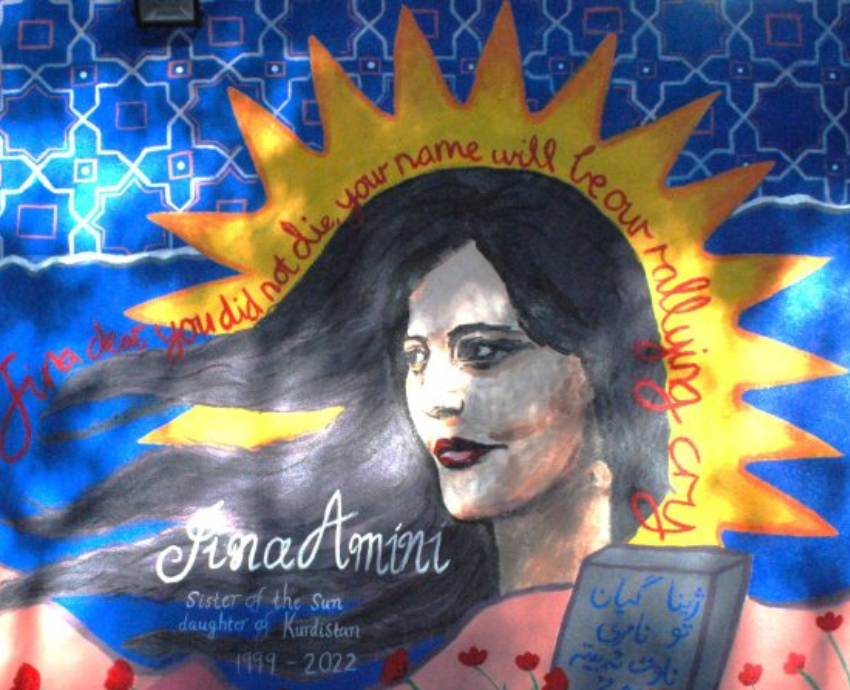
Cameron Murphy, Labor Member of the Legislative Council (MLC), presented a resolution to the New South Wales parliament on August 23, expressing solidarity with the Iranian people’s protest movement, following the state murder of Mahsa Jîna Amini.
The resolution, seconded by Liberal MLC Jacqui Munro, called for more sanctions on the Iranian dictatorship, and acknowledged the 10 Point Plan of the National Council of Resistance of Iran (NCRI). It was carried unanimously.
Greens MLCs Abigail Boyd and Cate Faehrmann, as well as Labor MLCs Bob Nanva and Mark Buttigieg, spoke in support.
Faehrmann said: “Recently, I added my signature to a statement by Iranian women within the Resistance, advocating for the establishment of a democratic republic in Iran. We wholeheartedly support the tireless struggle of Iranian women, a struggle deeply rooted in a century of their endeavours and quest for freedom and democracy."
This is the first chamber of an Australian parliament to vote this way. NSW MPs now join the 3600 MPs from 40 countries who have taken a stand this year.
Terror tactics
Meanwhile, leading figures in the Iranian government have been bragging about their international terror tactics, showing both brazen disregard for international law and their incapacity to change in the face of huge popular pressure for the end of their dictatorial regime.
Mohseni-Eje’i, the head of the regime’s judiciary, in an August 15 interview with the Al Mayadeen satellite media channel — which belongs to the Lebanese Hezbollah — called for members of the People’s Mojahedin Organisation of Iran (PMOI or MeK), who are refugees in Western countries, to be extradited to Iran.
The PMOI is the largest component of the National Council of Resistance of Iran.
“They must definitely hand them over; they must definitely stand trial … they must face the consequences of their actions,” he said. “The Islamic Republic of Iran wants to establish a fair court for them. On the first day, they will be told, if you want to have a lawyer, you may proceed. Which country do you have in mind that should establish a court for terrorists?”
Refugees targetted
In another development, Iran’s Supreme Leader Ali Khamenei’s Deputy International Affairs Adviser, Mohsen Pak Ayin, boasted on August 17 that the regime had launched cyber-attacks on Albania to pressure that government to target 3000 PMOI refugees living there.
“If Iran’s deterrent power did not exist, the aliens’ cyber-attacks would have paralysed us,” he said. “With this robust cyber capability, Albania was convinced to take action against the MeK.
That the regime singled out the PMOI/MeK signals that it is positioning itself for an imminent and definitive show down against the organisation.
About 1200 Albanian police raided an Iranian refugee “mini-city” near Tirana, on June 20, allegedly to execute a search warrant.
One Iranian leader died after being excessively pepper sprayed and another 100 people were injured. The police seized 250 computers and interrogated about 1000 residents. The residents’ movements are still restricted despite their refugee status.
In addition, Iranian President Ibrahim Raisi on June 10 had a 90-minute phone call with French President Emmanuel Macron, after which Macron attempted to shut down a mass Iranian protest and conference set for July 1 in Paris. A French court overruled him.
In a surprising development, the United States announced on August 11 that it had reached an agreement to release US$6 billion in frozen Iranian assets to Tehran in exchange for the release of five US citizens, held hostage in Iran for up to eight years.
“These unusual moves from the US, France and Albania have given the regime some breathing space,” said Peter Murphy from the Australian Supporters of Democracy in Iran.
“But the looming mass protests on the anniversary of Ms Amini’s murder on September 16 will again demonstrate that its days are numbered.
“The absurdity of Eje’i’s demands for the illegal extradition of thousands of PMOI members in Europe throws the horror of the dictatorship into sharp relief.
“The whole religious dictatorship is on the brink of collapse,” Murphy said.
The Iranian protest movement is continuing despite the repression: at least 750 protesters have been killed in the streets and more than 30,000 arrested.
As well as the 3600 MPs who have called on their governments to take action to support the Iranian people, 124 former presidents and prime ministers have demanded accountability and prosecution of the regime’s leaders for the massacre of more than 30,000 Iranian political prisoners in 1988 and the political killings that have continued over 44 years.
Australian federal MPs attended a briefing in Iran on August 9; Labor, Liberal and Green MPs and Senators are pushing for the regime to be held accountable for the 1988 massacre.
This global campaign is making progress after decades of indifference to the acute suffering of the Iranian people by Western governments.
As September 16 approaches, the Iranian people are poised for nothing less than an all-out confrontation against the dictatorship.
[Mohammad Sadeghpour is President of the Association to Defend Freedom and Human Rights in Iran- Australia.]